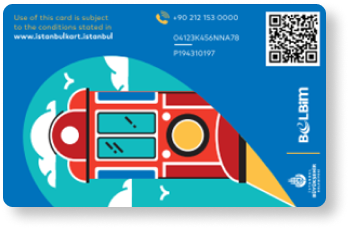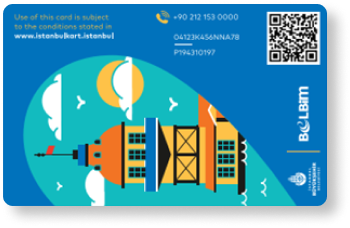
Everything You Need to Know about Cappadocia: History of Cappadocia
History of Cappadocia
If you are wondering about the history of Cappadocia, this is what you looking for! The historical region of Cappadocia is located in Turkey's Central Anatolia. It is located in the Nevsehir, Kayseri, Aksaray, Kirsehir, Sivas, and Nigde provinces. In Turkey, one of the most popular tourist destinations is Cappadocia. Numerous visitors come to the well-known area every year in their hundreds. Many people interested in visiting are wondering about Cappadocia's history.
The area was created 60 million years ago when soft lava and ash layers from Mount Erciyes (also known as Argeus), Mount Hasan, and Mount Güllü were eroded by wind and rain over a long period of time. The Paleolithic epoch marks the beginning of human habitation in the Cappadocia region. In later times, one of the most significant Christian communities was located in the former homelands of the Hittites. The area was transformed into a haven for Christians fleeing the rule of the Roman Empire by houses and churches cut into the caverns and rocks.
Cappadocia Before
The legendary Cappadocia was referred to as Hatti in the late Bronze Age and served as the home base for the Hittite Empire with its capital at Hattusa. Following the demise of the Hittite Empire, the Cappadocia kingdom was governed by a kind of feudal elite who resided in fortified castles and kept the peasants in a subservient state that rendered them susceptible to foreign slavery. It was a part of Darius' third Persian satrapy but retained its own rulers, none of whom appeared to be supreme over the entire nation and all of whom were more or fewer tributaries of the Great King.
Kingdom of Cappadocia
Alexander the Great attempted to establish control over the region after overthrowing the Persian Empire through one of his military leaders. Ariarathes, however, crowned himself ruler of the Cappadocians. Up to Alexander's passing, the Kingdom of Cappadocia was at peace. After the former empire was split up into numerous sections, Eumenes conquered Cappadocia. The regent Perdiccas made good on his claims by having Ariarathes executed in 322 BC, but amid the disputes that led to Eumenes' demise, Ariarathes II, the adopted son of Ariarathes I, reclaimed his inheritance and passed it to a line of successors who mostly bore the name of the dynasty's founder.
Cappadocia had contacts with Rome under Ariathes IV, first as a rival supporting Antiochus the Great and subsequently as an ally against Perseus of Macedon. From that point on, the kings aligned themselves with the Republic rather than the Seleucids, to whom they had occasionally paid tribute. Ariarathes V led the Romans in a march against Aristonicus, a contender for the throne of Pergamon, and their forces were completely destroyed. After his death, there was a commotion that eventually sparked Pontus's rise to power, which resulted in intrigues, conflicts, and the fall of the dynasty.
Modern Cappadocia
The region is a well-liked tourist destination since it offers a lot of places with distinctive geological, historical, and cultural qualities. Nevsehir, Kayseri, Aksaray, and Nigde are the four tourist-oriented cities that makeup Cappadocia. Urgup, Goreme, Ihlara Valley, Selime, Guzelyurt, Uchisar, Avanos, and Zelve are the major towns and locations in Cappadocia. Derinkuyu, Kaymakli, Gaziemir, and Ozkonak are a few of the most often visited caverns. Goreme offers hot-air ballooning, which is quite popular in the region.
Ihlara Valley is where most people go trekking. Additionally, winemaking and grape growing are well-known in the area. You may experience the famed wines and natural splendors of Cappadocia while there, in addition to taking in the historical beauty of the area. You and your loved ones will undoubtedly remember it forever.
What is the meaning of Cappadocia?
A lot of people think the word Cappadocia means fairy chimneys or something close to it, but it’s not true. The word Cappadocia is actually Persian. It is derived from the two words KATPA TUKA, meaning “the land of beautiful horses”. Since the Byzantine and Roman Empires use the Latin alphabet, the name changed to “Cappadocia” over many years.
When Persians won the wars that took place between them and the Romans, they took over the area surrounding Cappadocia: Nevsehir, Nigde, Kayseri, Kirsehir, Aksaray, and took care of the beautiful horses in the area, hence the name KATPA TUKA named after.
This is also the reason there are many horse-riding tours organized in the area. If you want to see unique breeds of beautiful horses, visit Avanos and the horse stables. You can go horse-rising FREE with the Cappadocia Travel Pass®, so book yours NOW!
FAQ:
Why is it called Cappadocia?
It is Latin and derived from the words KATPA TUKA (Persian).
What does Cappadocia mean?
It means “land of the beautiful horses” in Persian.
Are there a lot of horses in Cappadocia?
Horse attractions and breeds are mainly in the Avanos region.
Why is the word derived from Persian?
The Persians won over Cappadocia while they were fighting with the Roman Empire. They named it KATPA TUKA based on the many horses that existed in the region.
Can I go horse riding in Cappadocia?
Of course! Horseback riding tours are FREE with your Cappadocia Travel Pass® so book yours NOW!




 Travel around Istanbul freely
with Public Transportation Card
Travel around Istanbul freely
with Public Transportation Card
Buy your unlimited Istanbul Public Transportation Card now. We deliver it your hotel before you arrive.





Latest Posts

Why Should You Visit Cappadocia? Updated for 2023
Have you ever wondered where all those lovely photographs of a valley seen from a hot air balloon originate from? Cappadocia, tucked right in the heart of Turkey's Anatolia region, is one of the country's tourism centers, despite its tiny size. And w...

Cappadocia: Hot Air Balloon Flight Guide 2023
Have you ever wondered what it feels like to fly? To float among the birds in the sky and enjoy a bird’s eye view of the gorgeous surroundings around you? Hot air balloons in Cappadocia, Turkey provide just that and more – all the while delivering an...

Underground Cities of Cappadocia
The ancient underground cities of Cappadocia may strike the interest of even the most claustrophobic person! Every year tens of thousands of tourists around the world visit Cappadocia to discover these mysterious caves and learn about their history. ...

How far is Cappadocia from Istanbul?
The distance between Cappadocia and Istanbul is around 730 km (454 miles). This may seem like a lot but think about all the adventures you will experience once you arrive! Furthermore, there are many ways to get there and you will surely find one tha...

Top Things to Do in Cappadocia
Wondering about things to do in Cappadocia? Trying to arrange your trip but there are many question marks. Cappadocia Travel Pass® provides over 25 attractions, with just one pass – so book yours NOW! Here is a list of the main must-do activities but...

The Top 20 Amazing Cave Hotels in Cappadocia
Looking for a unique, one-of-a-kind place to stay in Cappadocia? Why not try a cave hotel? There are plenty of incredible cave hotels in Cappadocia that maintain the region’s history while providing a uniquely modern experience.&n...

Everything About Ihlara Valley
Ihlara Valley, which can be mistakenly written as Ilhara Valley, is a canyon with a depth of around 120 meters and was created by the Melendiz River thousands of years ago. To enjoy this amazing natural beauty, Cappadocia Travel Pass offers yo...

The Top 18 Reasons to Visit Cappadocia
There are many reasons to visit Cappadocia, from its amazing natural beauty to the warm and welcoming natives. Here, you can find 18 reasons to visit Cappadocia! Planning your Cappadocia trip can be exhausting since you may see many different ...

Cappadocia From İstanbul
Istanbul is Turkey’s most crowded city and it has many cultural values because of the historical background of the region. Tourists mostly prefer to start their Turkey journey from İstanbul because of these facts. The distance between Istanbul and C...

Whirling Dervishes Sema Ceremony in Cappadocia
The term "sema" has Arabic roots. It can mean two things. The sky is one, and listening is another. It eventually came to be known as one of the dhikr rituals the Sufis, who practiced Sufism, did by rotating themselves around to the accompaniment of ...

4.8 out of 5 stars
Cappadocia Travel Pass has an average rating of 4.8 /5 from 1086 reviews
Read all traveler reviews →